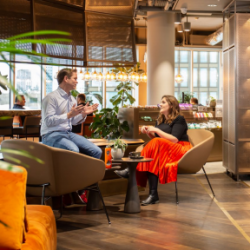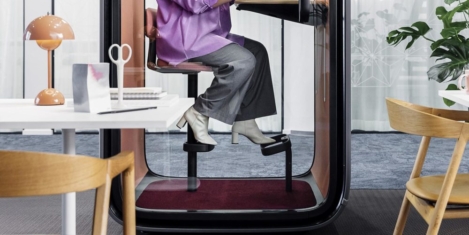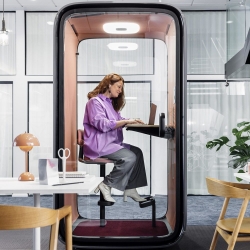To provide the best experiences, we use technologies like cookies to store and/or access device information. Consenting to these technologies will allow us to process data such as browsing behaviour or unique IDs on this site. Not consenting or withdrawing consent, may adversely affect certain features and functions.
The technical storage or access is strictly necessary for the legitimate purpose of enabling the use of a specific service explicitly requested by the subscriber or user, or for the sole purpose of carrying out the transmission of a communication over an electronic communications network.
The technical storage or access is necessary for the legitimate purpose of storing preferences that are not requested by the subscriber or user.
The technical storage or access that is used exclusively for statistical purposes.
The technical storage or access that is used exclusively for anonymous statistical purposes. Without a subpoena, voluntary compliance on the part of your Internet Service Provider, or additional records from a third party, information stored or retrieved for this purpose alone cannot usually be used to identify you.
The technical storage or access is required to create user profiles to send advertising, or to track the user on a website or across several websites for similar marketing purposes.
 A new poll from XpertHR claims that nearly all UK organisations (95 percent) have encountered challenges implementing hybrid working, with reluctance to return to the workplace the leading issue currently faced by employers. Of the 292 organisations XpertHR surveyed, almost all (95 percent) operate a hybrid model. For most (59 percent) organisations, staff generally spend between 2-3 days working from home each week, however, over a third (37 percent) of staff are unhappy with this split and would prefer to spend even less time in the office. More →
A new poll from XpertHR claims that nearly all UK organisations (95 percent) have encountered challenges implementing hybrid working, with reluctance to return to the workplace the leading issue currently faced by employers. Of the 292 organisations XpertHR surveyed, almost all (95 percent) operate a hybrid model. For most (59 percent) organisations, staff generally spend between 2-3 days working from home each week, however, over a third (37 percent) of staff are unhappy with this split and would prefer to spend even less time in the office. More →



















 Employees with full autonomy to choose where they work are happier in their job, yet only one in five are currently able to do so. And though 60 percent of all employees prefer hybrid working, only 39 percent are able to flexibly split their time between the home and office. This is according to Jabra’s 2022 edition of the
Employees with full autonomy to choose where they work are happier in their job, yet only one in five are currently able to do so. And though 60 percent of all employees prefer hybrid working, only 39 percent are able to flexibly split their time between the home and office. This is according to Jabra’s 2022 edition of the 













June 29, 2022
Workplace green flags to look out for
by Samantha Losey • Comment, Wellbeing